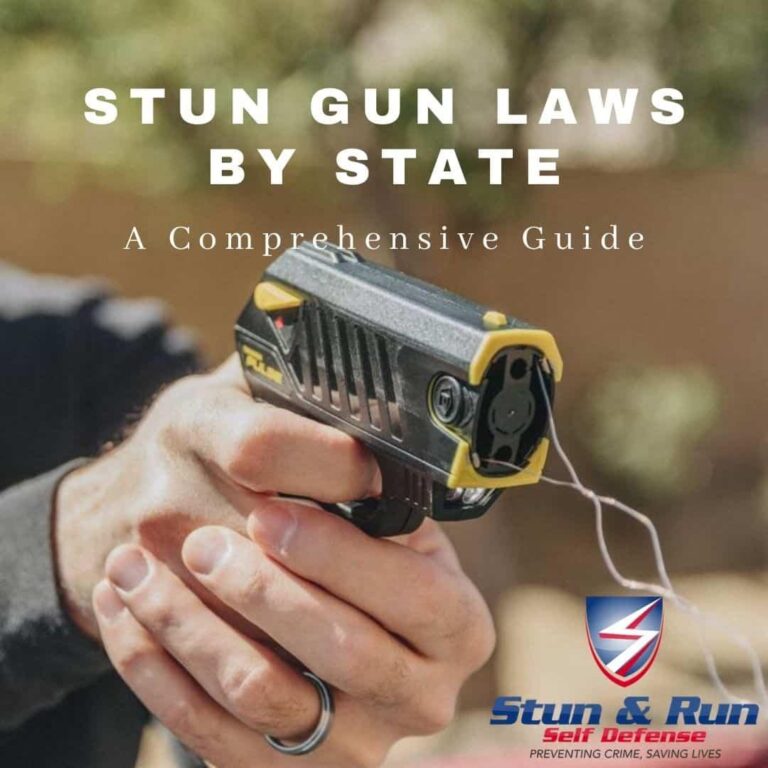Table of Contents
- Understanding Florida’s Legal Framework for Concealed Stun Guns
- Key Requirements for Obtaining a Concealed Stun Gun License
- Practical Tips for Safely Carrying and Using a Concealed Stun Gun
- Common Legal Pitfalls and How to Avoid Them in Florida
- To Wrap It Up
Understanding Florida’s Legal Framework for Concealed Stun Guns
In Florida, the legal landscape surrounding concealed stun guns is shaped by specific statutes that balance public safety with individual rights. Unlike firearms, stun guns are classified distinctly under Florida law, which influences how they can be carried and used. Notably, Florida does not require a license to carry a concealed stun gun, making it more accessible for self-defense purposes. However, there are clear restrictions on where these devices can be carried, emphasizing safety and responsible use.
It’s essential to understand key points such as:
- Age Requirements: Individuals must be 18 or older to carry a stun gun legally.
- Restricted Locations: Concealed stun guns are prohibited in schools, government buildings, and certain private properties that explicitly ban weapons.
- Use in Self-Defense: Using a stun gun is only lawful in situations where reasonable force is needed to protect oneself or others.
Key Requirements for Obtaining a Concealed Stun Gun License
To obtain a concealed stun gun license in Florida, applicants must meet strict eligibility criteria designed to ensure public safety. First and foremost, individuals must be at least 18 years old and legally allowed to own a stun gun under Florida law. This includes passing a background check that screens for any felony convictions or restraining orders. Additionally, applicants must be residents of Florida or provide valid proof of residency. The process also involves completing a mandatory application form and submitting it along with the required fees to the appropriate local law enforcement agency.
Beyond basic eligibility, applicants may be required to provide specific documentation and demonstrate a legitimate need for carrying a concealed stun gun. This can include identifying yourself as a professional or personal safety alarmist, as well as submitting to fingerprinting and photographs for identification purposes. The following key components are typically necessary:
- Proof of identity and residency
- Completion of application and payment of fees
- Successful background and criminal history checks
- Compliance with local regulations regarding stun gun possession
Practical Tips for Safely Carrying and Using a Concealed Stun Gun
When carrying a concealed stun gun in Florida, safety must be your top priority. Always ensure your device is fully charged and in proper working order before you leave the house. Store it in an accessible yet secure spot-such as a dedicated holster or compartment on your person-to avoid fumbling during an urgent situation. Remember, the element of surprise is crucial for self-defense tools; therefore, keep your stun gun discreetly concealed to maintain its effectiveness and prevent unnecessary alarm.
Using your stun gun responsibly requires a clear understanding of both legal limitations and practical techniques. Never activate the device unless you face an immediate threat, and avoid targeting vulnerable areas like the head or heart to minimize serious injury. Regularly practice safe handling, including how to quickly deploy and disengage the stun gun. Some handy safety practices include:
- Keeping the stun gun away from children and unauthorized users.
- Reviewing Florida state laws periodically to stay compliant.
- Testing the device in a controlled environment to understand its range and effect.
- Avoiding physical confrontations when possible and only resorting to the stun gun as a last defense.
Common Legal Pitfalls and How to Avoid Them in Florida
When carrying a concealed stun gun in Florida, one of the most common legal missteps is misunderstanding the state’s licensing requirements. Florida law permits residents to carry stun guns but does not require a specific concealed weapons license for them, unlike firearms. However, it is vital to ensure the device you carry conforms to Florida’s definitions and regulations regarding stun guns and is not classified as a prohibited weapon. Carrying a stun gun in prohibited locations such as schools, courthouses, or during certain sporting events can lead to serious legal consequences, even if you possess the appropriate documentation.
To steer clear of legal trouble, always keep these key points in mind:
- Verify local ordinances: Some municipalities may have additional restrictions or bans on stun guns.
- Proper storage and transport: When not in use, ensure your stun gun is stored safely and not openly visible to avoid misunderstandings.
- Know your rights and responsibilities: Understand when and where use of a stun gun is legally justifiable under Florida’s self-defense laws.
By staying informed and compliant with these legal nuances, Florida residents can responsibly carry concealed stun guns and protect themselves while avoiding common pitfalls that often result from misinformation or oversight.
To Wrap It Up
In summary, understanding the laws surrounding carrying a concealed stun gun in Florida is essential for responsible ownership and personal safety. While Florida does not require a license to carry a stun gun, being aware of where and how you can legally carry one is crucial to avoid any legal complications. Always stay informed about local regulations and exercise good judgment to ensure your means of self-defense remain both effective and lawful. Stay safe and empowered!Check Our Other Blogs
- StunGun – Your Trusted Source for Stun Guns, Laws, and Self-Defense Tips
- PepperSprayLaws – Your Trusted Resource for Pepper Spray Information
- StunGunLaws – Your Trusted Guide to Stun Gun Legality and Safety





